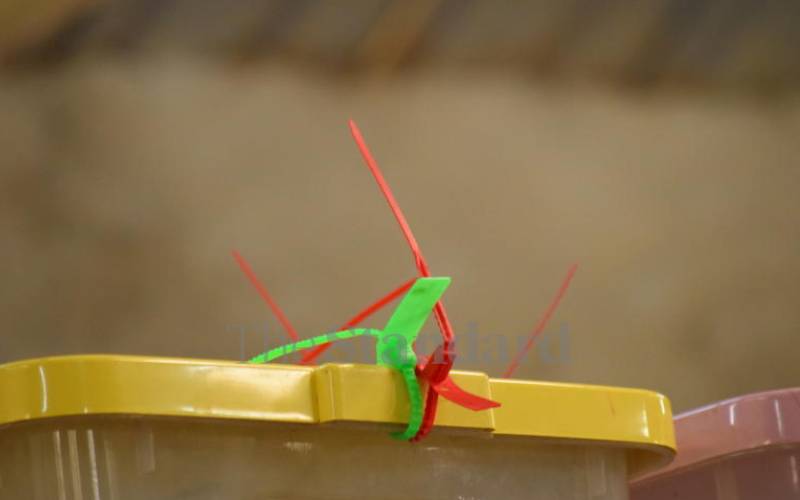×
The Standard e-Paper
Join Thousands Daily

A sealed ballot box, Mweiga, Kieni. August 10, 2017. [David Gichuru, Standard]
Our adolescent Constitution made it unscathed to its eleventh birthday on Friday. The constitutional moment now behind us, we must not lose sight of the looming political moment.